Art Nouveau is more than just a design style; it’s an ethos that reflects a harmonious blend of nature and art. This article delves deep into the world of Art Nouveau interior decor, offering insights from my personal experiences and lessons learned along the way. Whether you’re a seasoned designer or a homeowner looking for inspiration, this guide will help you appreciate and incorporate Art Nouveau into your space.
What is Art Nouveau?
Art Nouveau, which flourished between the late 19th and early 20th centuries, is characterized by its organic forms, intricate details, and a focus on craftsmanship. It emerged as a reaction against the industrial age and mass production, favoring personalized artistry. The movement can be seen in architecture, furniture, textiles, and decorative arts.
The Origins of Art Nouveau
The term ‘Art Nouveau’ translates to ‘new art’ in French. It originated in Belgium and quickly spread throughout Europe, influencing artists and designers such as Gustav Klimt, Alphonse Mucha, and Antoni Gaudí. The movement is synonymous with the use of flowing lines, floral motifs, and a preference for natural materials.
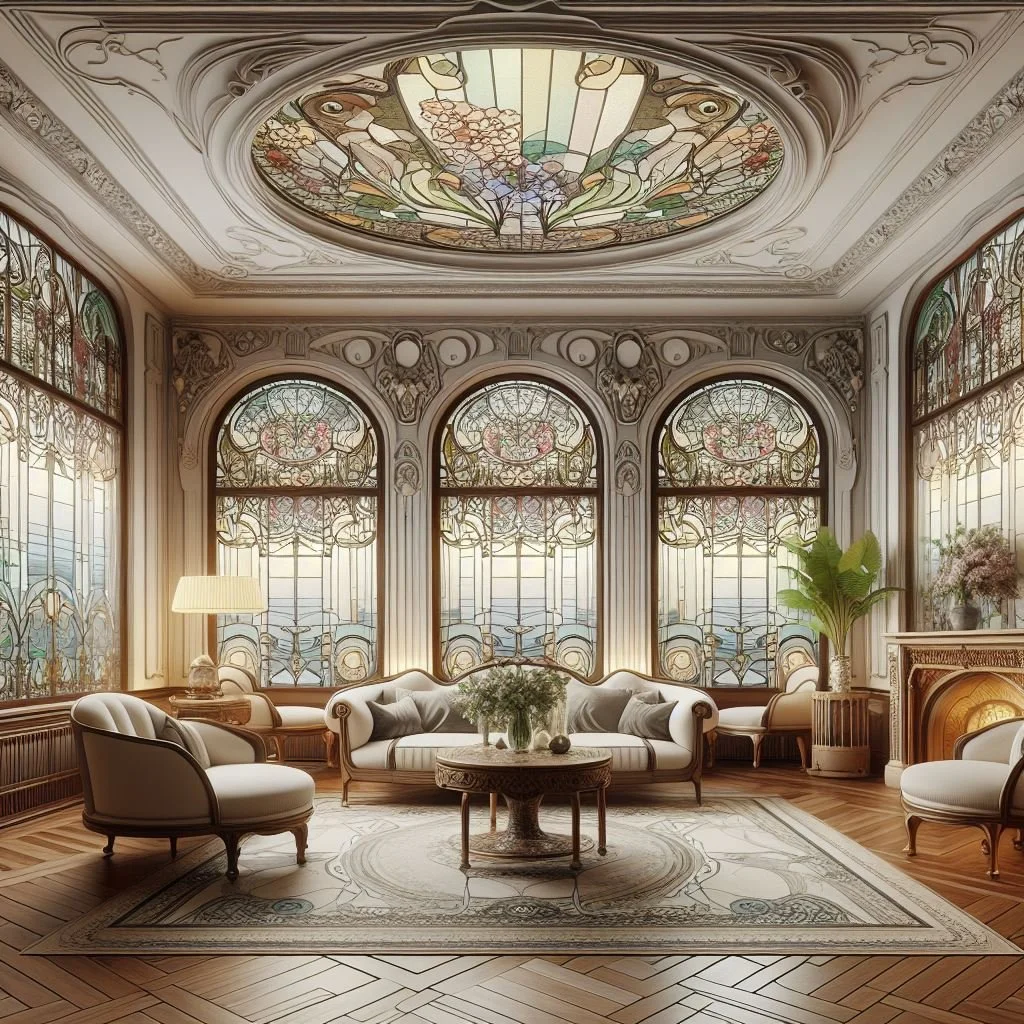
Key Characteristics of Art Nouveau Decor
- Organic Lines: Curved, flowing shapes echoing the forms found in nature.
- Nature Motifs: Floral and plant-inspired designs are prevalent.
- Exquisite Craftsmanship: A focus on handmade items, often featuring intricate detailing.
- Rich Materials: Use of quality materials like wood, glass, and metals.
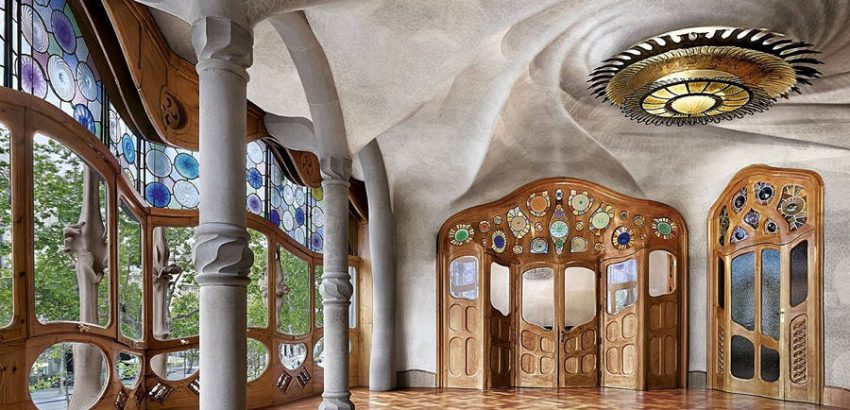
Why Choose Art Nouveau for Your Home?
Choosing Art Nouveau interior decor can transform your living space into an enchanting retreat. Here’s why I believe this style can elevate any home.
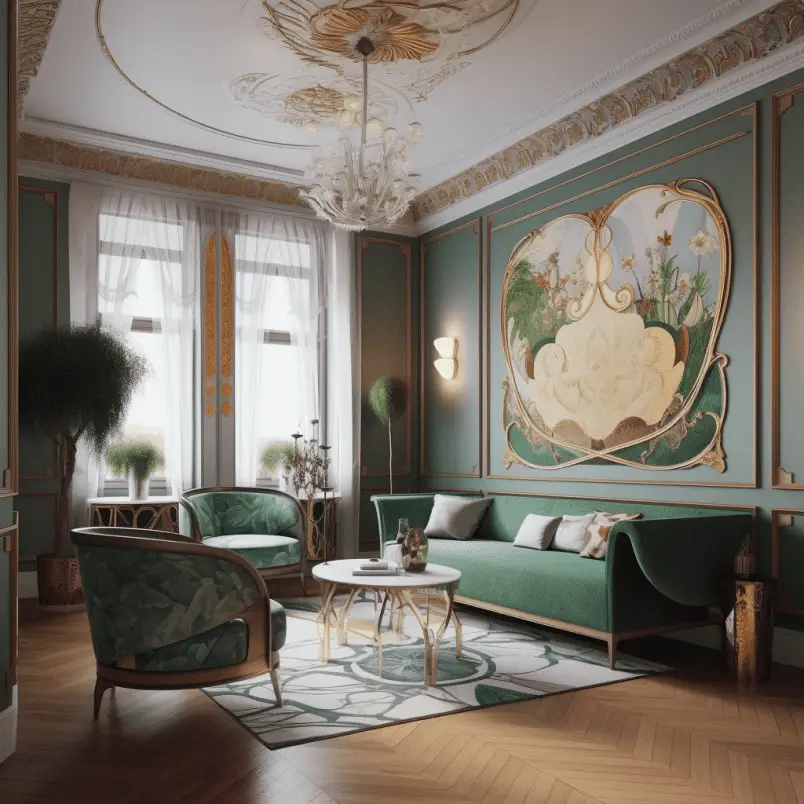
Timeless Elegance
Art Nouveau has a timeless quality that can complement both modern and vintage spaces. Its intricate designs bring an air of sophistication that’s hard to replicate with other styles.

Connection to Nature
In our increasingly digital world, the organic elements of Art Nouveau help create a calming atmosphere, making your home feel like a sanctuary.

Conversation Starter
Art Nouveau pieces often evoke curiosity, making them great conversation starters when hosting guests. Sharing the stories behind these pieces can create meaningful connections.
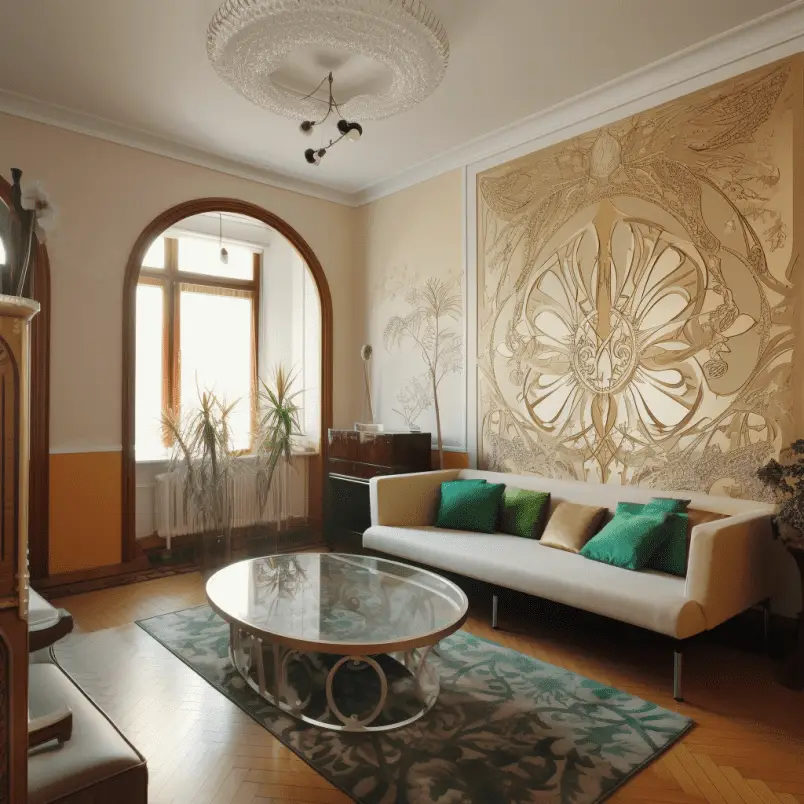
Incorporating Art Nouveau in Interior Decor
Transitioning your space to reflect the Art Nouveau style doesn’t have to be overwhelming. Here’s a detailed guide to help you get started.
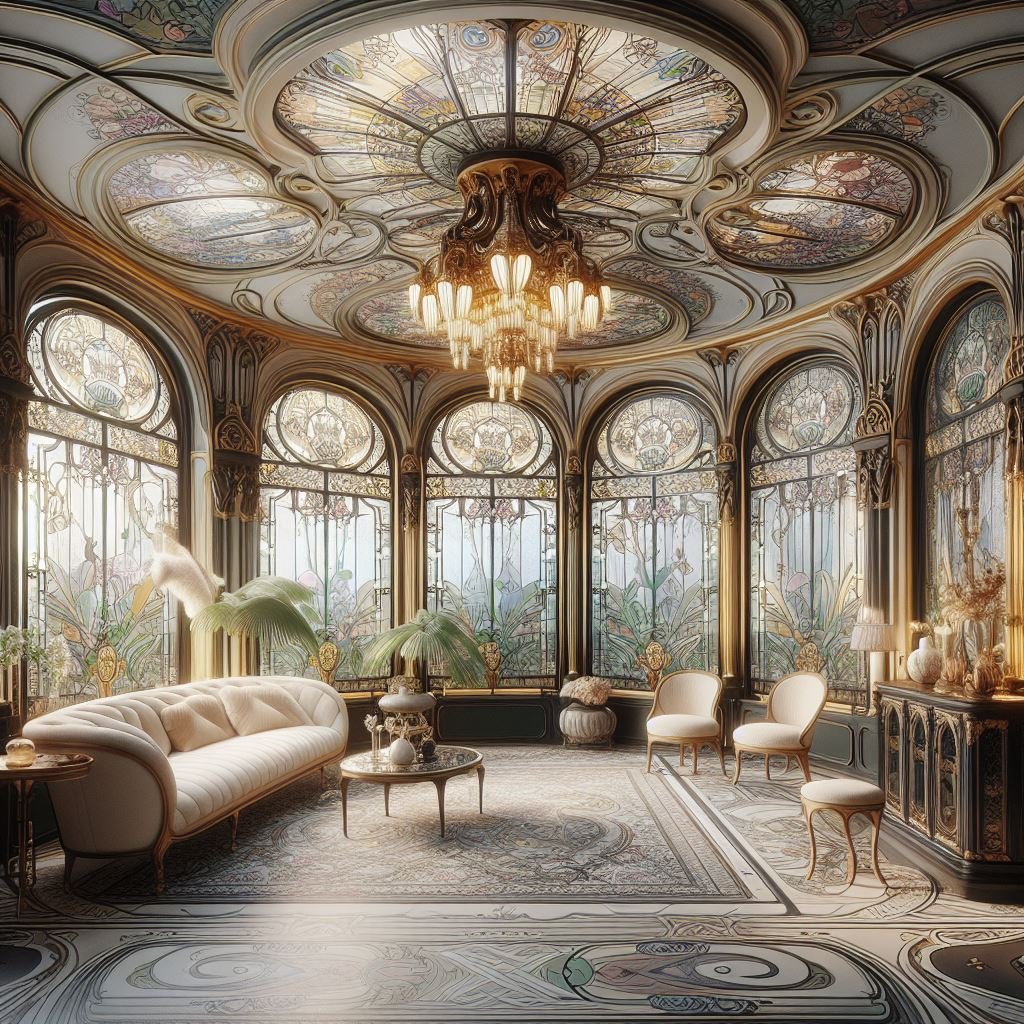
Key Elements to Consider
| Element | Description | Examples |
|---|---|---|
| Furniture | Curved shapes and elaborate ornamentation. | Wavy chairs, intricately carved tables. |
| Wall Decor | Floral motifs and nature-inspired murals. | Paintings by Alphonse Mucha, wallpapers with curves. |
| Lighting | Stained glass and soft, diffused lighting. | Table lamps with floral designs, chandeliers. |
| Textiles | Soft fabrics with flowing patterns. | Curtains and upholstery with nature motifs. |
Choosing Colors
The color palette in Art Nouveau decor tends to reflect the natural world. Earthy tones, muted greens, soft pastels, and occasional pops of brighter colors can create a serene ambiance. In my experience, pairing soft greens with deep browns can evoke a lush forest feel, perfect for a cozy living space.
Finding the Right Furniture
Look for vintage or reproduction pieces that embody the fluid lines of the Art Nouveau movement. Think about investing in a stunning piece of furniture like a carved wooden chair or a table with intricate inlays. Remember, it’s about quality over quantity; one exquisite item can serve as a focal point.
Pros and Cons of Art Nouveau Decor
Pros
- Artistic Expression: Allows for a high level of creativity and personalization.
- Unique Designs: Each piece tends to be highly distinctive.
- Feeling of Comfort: The organic forms create a welcoming atmosphere.
Cons
- Maintenance: Intricate designs can require more upkeep.
- Cost: Authentic pieces can be expensive.
- Limited Availability: True Art Nouveau items may be hard to find.
Art Nouveau vs. Other Design Styles
| Feature | Art Nouveau | Modern | Minimalist |
|---|---|---|---|
| Forms | Curvilinear, organic | Sleek, geometric | Simplistic, straight lines |
| Materials | Natural, ornate | Mixed, often synthetic | Basic, functional |
| Color Palette | Earthy, muted tones | Bold, vibrant colors | Neutral or monochrome |
| Aesthetic Focus | Nature, craftsmanship | Functionality | Space, simplicity |
FAQs about Art Nouveau Interior Decor
What are some popular Art Nouveau motifs?
Common motifs include floral patterns, flowing lines, and scenes from nature. Artists like Gustav Klimt and Alphonse Mucha incorporated these elements into their works, making them iconic representations of the style.
Is Art Nouveau suitable for small spaces?
Yes! While the style often features bold elements, you can integrate Art Nouveau in smaller spaces by focusing on accent pieces, like a single lamp or artwork, to avoid overwhelming the area.
Can I mix Art Nouveau with contemporary styles?
Absolutely! Mixing styles can create a unique and personalized decor. Just ensure there is a balance; use Art Nouveau pieces as accents in a contemporary design to maintain cohesion.
Where can I find authentic Art Nouveau pieces?
Look for local antique shops, art deco fairs, or online marketplaces specializing in vintage decor. However, ensure the authenticity by researching the seller and understand the item’s history.
Conclusion
Art Nouveau interior decor is a delightful way to infuse your home with beauty and personality. By understanding its key elements and how to incorporate them into your space, you can create a stunning sanctuary. Embrace the timeless elegance of Art Nouveau, and let your home reflect your unique style!